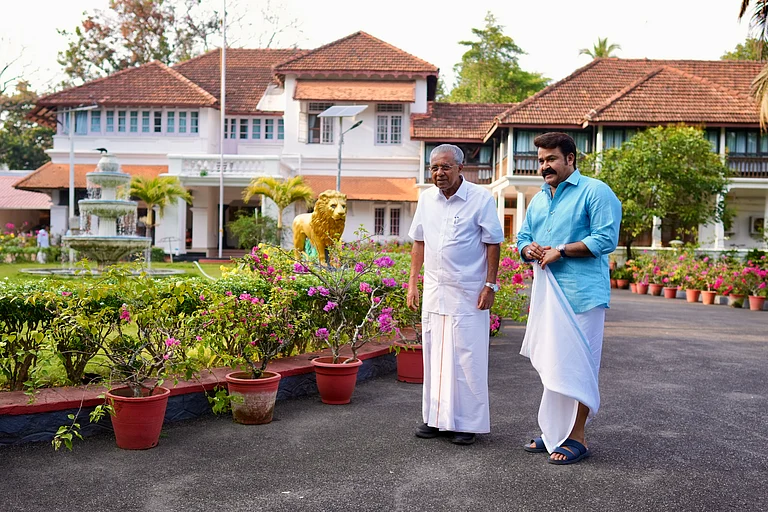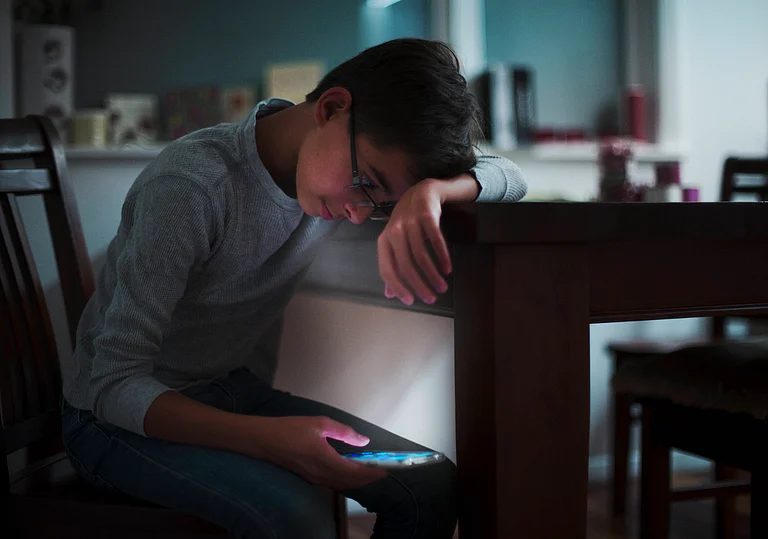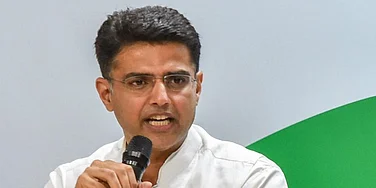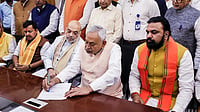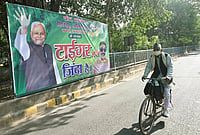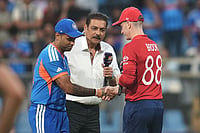Dozens of farmers were marching towards New Delhi, when they were blindsided by piercing objects and eye-burning tear gas fired by security forces. While some lay writhing in pain on the roads of Shambhu border, others tried to document the brutal assault on farmers, on social media platforms that amass a million users. “Your account has been withheld in IN [India] in response to a legal demand” – was the message displayed on their social media pages. But farmers say, “You block our handles but not our resolve.”
At least a dozen social media accounts of farmer leaders, activists and farmer-led organisations were withheld in India in the wake of their renewed agitation against the Centre’s policies. As reported by PTI, the suspension orders were issued by the Ministry of Electronics and Information Technology on February 14 and 19 at the request of the Ministry of Home Affairs under section 69A of the IT Act – that empowers Government to block information from public access under specific conditions, including in the interest of sovereignty and integrity of India and security of the State.
Internet rights organisations like the Internet Freedom Foundation (IFF) have warned that such actions undermine both freedom of expression and the right to information.
Which accounts have been suspended?
Accounts known for their documentation of farmers’ agitation and support for farmers’ rights including Gaon Savera, journalist Mandeep Punia, Tractor 2 Twitter, FarmStudioz – an account run by farmer and activist Gurpreet Sangha – received abrupt suspension notices on February 12, a day before they were to march towards Delhi.
Many of these accounts served as go-to sources for people on social media for information regarding the ongoing farmers’ protest and farmers’ rights in general. Gaon Savera, for example, is a small independent platform run by Punia, covering several aspects of rural life and agriculture in Haryana and Punjab.
‘Tractor 2 Twitter’ was a twitter handle that was managed by a group of 8-10 professionals – mostly young activists – from different states, who would take the issues of farmers from the ground to online in an attempt to make farmers’ rights in India an ‘international issue’.
Farmers and activists say that suspending such accounts points towards a dangerous trend where accounts spreading ‘misinformation’ about the ongoing farmers protest are still running whereas accounts that have functioned as voices of farmers are being suspended.
“In this movement, where even small social media handles are being blocked, you just see which social media handles of big farmer leaders are active. Then see their stand, when farmer brothers are on the verge of death on Shambhu/Khanauri. Burning effigies, giving statements,” farmer leader Gurpreet Sangha said in a post on X, a day after his social media handle was suspended – twice - amid the ongoing farmers protest. The handle he currently uses – @FarmStudiozzz – is the third account the farmer leader has created. The bio of his account reads, “You block our handles (twice) but not our resolve.”
Along with farmers, accounts of tribal activists including Hansraj Meena and the official account of 'Tribal Army' have also been blocked. Asserting that this is not the first time Dalit and Adivasi voices are being censored, Former MP Prakash Ambedkar said, “Whenever there is dissent from and for the deprived and marginalised sections — Dalits, Adivasis and Muslims - of the society, the government moves every stone to curb and censor these advocating voices.”
Reasons for blocking?
The suspension orders are usually issued under Section 69A of the Information Technology (IT) Act, 2000. It allows the Government to issue blocking orders, whereby public access to content on the internet can be restricted. The grounds for issuing these orders should be in “the interest of the sovereignty and integrity of India, defense of India, the security of the state, friendly relations with foreign states or public order or for preventing incitement to the commission of any cognizable offence relating to the above”.
As highlighted in a report by Centre for Information and Society titled “Platforms as gatekeepers: threats to digital space”, the use of the words “security”, “public order” and “safety”, which are open-ended pre-conditions, are repeatedly emphasised as justifications to administer surveillance online. Any minor offence can be treated as a necessary occasion to identify suspects with the use of surveillance. The rules of the Act also mandate “strict confidentiality” around the blocking procedure. So along with broad justifications, the legal framework itself doesn’t provide any recourse to individuals whose content is being blocked. This gives the state disproportionate powers to impose restrictions on online activities without any scope of accountability, the report notes.
The IFF too notes that without disclosing the reasons behind the blocking orders, individuals are deprived of an opportunity to challenge the legality of such actions.
Further, due to such vague provisions, social media platforms tend to err on the side of caution and over comply with takedown notices issued by the Government to avoid liability, the CIS report also said. Likewise, Elon Musk's X complied with the Indian government's notices of takedown of content, but expressed disagreement with the same. “The Indian government has issued executive orders requiring X to act on specific accounts and posts, subject to potential penalties including significant fines and imprisonment. In compliance with the orders, we will withhold these accounts and posts in India alone; however, we disagree with these actions and maintain that freedom of expression should extend to these posts," the official Global Government Affairs account of X wrote on the microblogging site.
On the grounds of such uncertainty in the takedown criteria, India submitted the 5th largest number of requests (7 per cent of global legal demands) to remove content from Twitter, during the period of Anti-CAA protests in December 2019 and January – March 2020. Additionally, the number of accounts specified to be taken down, also increased by 69 per cent during this period. Facebook, on the other hand, restricted access to 681 items on Facebook and Instagram combined, in response to directions provided by the Ministry of Electronics and Information Technology.
The reasons provided for the takedown by the transparency website of Facebook stated that they violated Section 69A of the IT Act 2000, including posting content against security of the state and public order. Further information about the content takedown was not available due to the confidentiality requirement of the Act.



